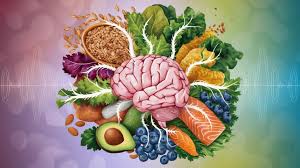Research explores effect of keto diet on mental health

Q I’ve been considering giving the ketogenic diet a try. When a friend took it to lose weight, she saw positive results. I had already begun to worry that eating too much fat might be unhealthy. I’ve since read that anxiousness can result from a high-fat diet. Is that accurate?
An For a number of years, one of the most well-liked diet plans in the US has been the ketogenic diet. Its foundation is a rigorous restriction on carbohydrates, which compels the body to alter how it gets energy. Since carbohydrates are essentially eliminated, glucose, the favored energy source, is no longer accessible. The body is compelled to resort to burning fat, which is its backup fuel source. The keto diet gets its name from the substances produced by this process, which are referred to as ketone bodies.
Though the most popular type of keto is the high-fat variety, a high-protein diet can also put you into ketosis. With this method, fat accounts for up to 90% of daily calories. The long-term health implications of this diet, especially those on blood lipid levels, are unclear, despite the fact that it is linked to improved blood glucose control.
The possible impacts of a ketogenic diet on mood and mental health are likewise of great interest. We looked at studies in a recent piece that suggests a ketogenic diet may help control the mood swings linked to bipolar disorder. Additional research has connected the ketogenic diet to reductions in depressive symptoms.
But now, Colorado researchers have connected a high-fat diet to elevated anxiety. Still, there are a number of things to take into account. One is that rats, not people, were the study’s subject. The other is that the rats’ diet was virtually entirely made up of saturated fats. The proportion of saturated fats was quite similar to the average diet in the United States.
But the diet was not ketogenic. The gut-brain axis and the gut microbiome were the subjects of the researchers’ investigation into the potential effects of high saturated fat intake. This metabolic pathway facilitates communication between the brain and the gastrointestinal tract.
The diversity of the gut microbiomes was significantly reduced in the high-fat rats during the nine-week study period as compared to the control group, which consumed a nutritious diet. In addition, they put on weight and displayed signs of elevated anxiousness. A fecal examination revealed a rise in bacteria linked to obesity. Furthermore, the rats experienced metabolic alterations linked to an increase in a particular subgroup of serotonin.
Serotonin, a neurotransmitter that aids in mood regulation, is commonly referred to as the feel-good hormone. Nonetheless, it is recognized that the particular subgroup of serotonin seen in the rats causes anxiety. An portion of the brain stem associated with stress and anxiety showed a notable rise in that subset. While the rats did consume a high-fat diet, they were not in the metabolic state of ketosis. Therefore, it is not possible to infer any inferences from these results regarding the possible effects of a ketogenic diet.




